How softball is helping combat loneliness in London
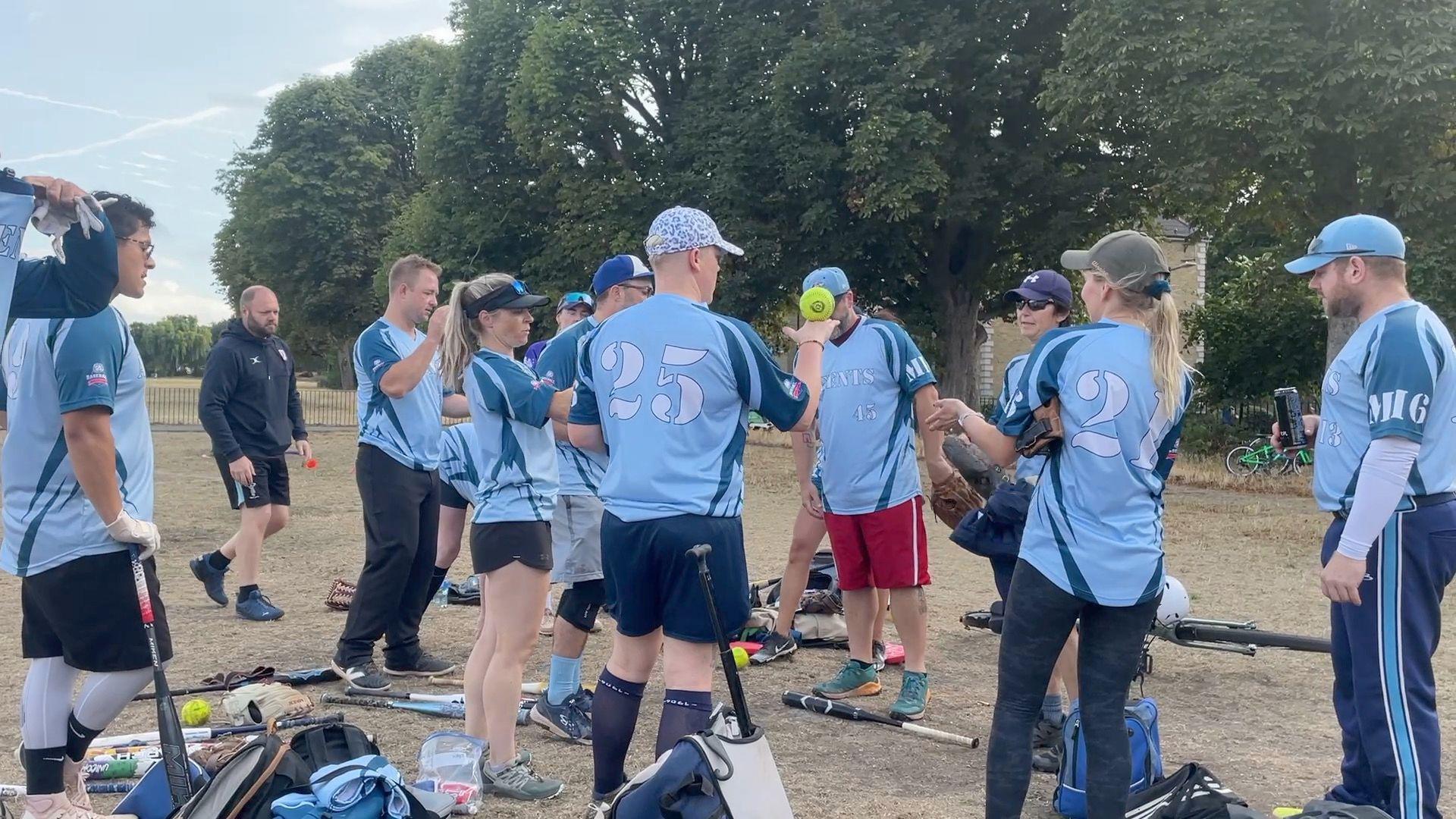
Softball games are played in London's parks every night of the week during summer
- Published
When Dom Kleeman and her husband moved from the US, they had an isolated start to their new life in London.
"We moved over in the pandemic - we didn't know anybody," said Ms Kleeman.
Since then, the couple have formed their social circle on a diamond-shaped pitch, by joining a local softball team.
And like nearly 5,000 Londoners who play the sport each week, they have found a welcoming, inclusive community as well as a healthy hobby.
"We found MI6 (softball club) and they took us in," said Ms Kleeman.
"Softball for us and for me became my social circle - it's super social, everyone's really friendly with each other.
"I'm so grateful that I've found this community because it is my community in London. So, yeah, we are really lucky."
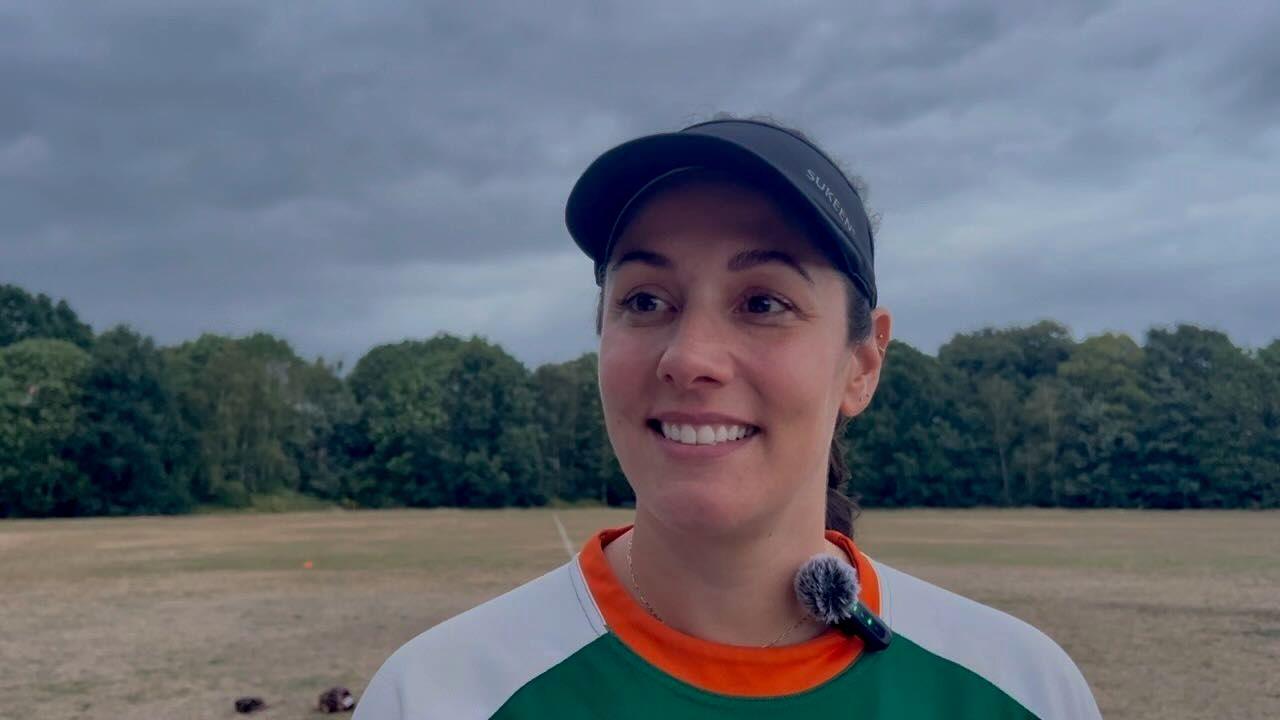
Dom Kleeman and her husband started playing softball to meet new people
Softball originated in the US more than a century ago and has two formats - fastpitch and slowpitch - the latter being more popular in the UK.
Different rules in slowpitch, including how the ball is thrown, allow for the sport to be mixed-sex (co-ed), which players cite as one of its main draws.
Duncan Waugh, who plays for MI6 and National Softball League team Legends, said: "It's unique because if you go back to the States, it's a very single-sex-driven game, just guys playing guys and girls playing girls.
"Over here, because of the balance of that it adds different strategy, different tactics and different levels of value across the board."
"You really get that sense of community from men and women playing together," said Gelske Huyer, who plays for London Softball League (LSL) Division 1 team MI6.
For Ms Huyer, who also plays for Legends, the co-ed aspect "creates an atmosphere of quality and tolerance".
She added it was "very important to give people an outlet for competition in adulthood".
"There's competition and levels available for everybody - from novices to seasoned players - and the competition and camaraderie are high," she said.
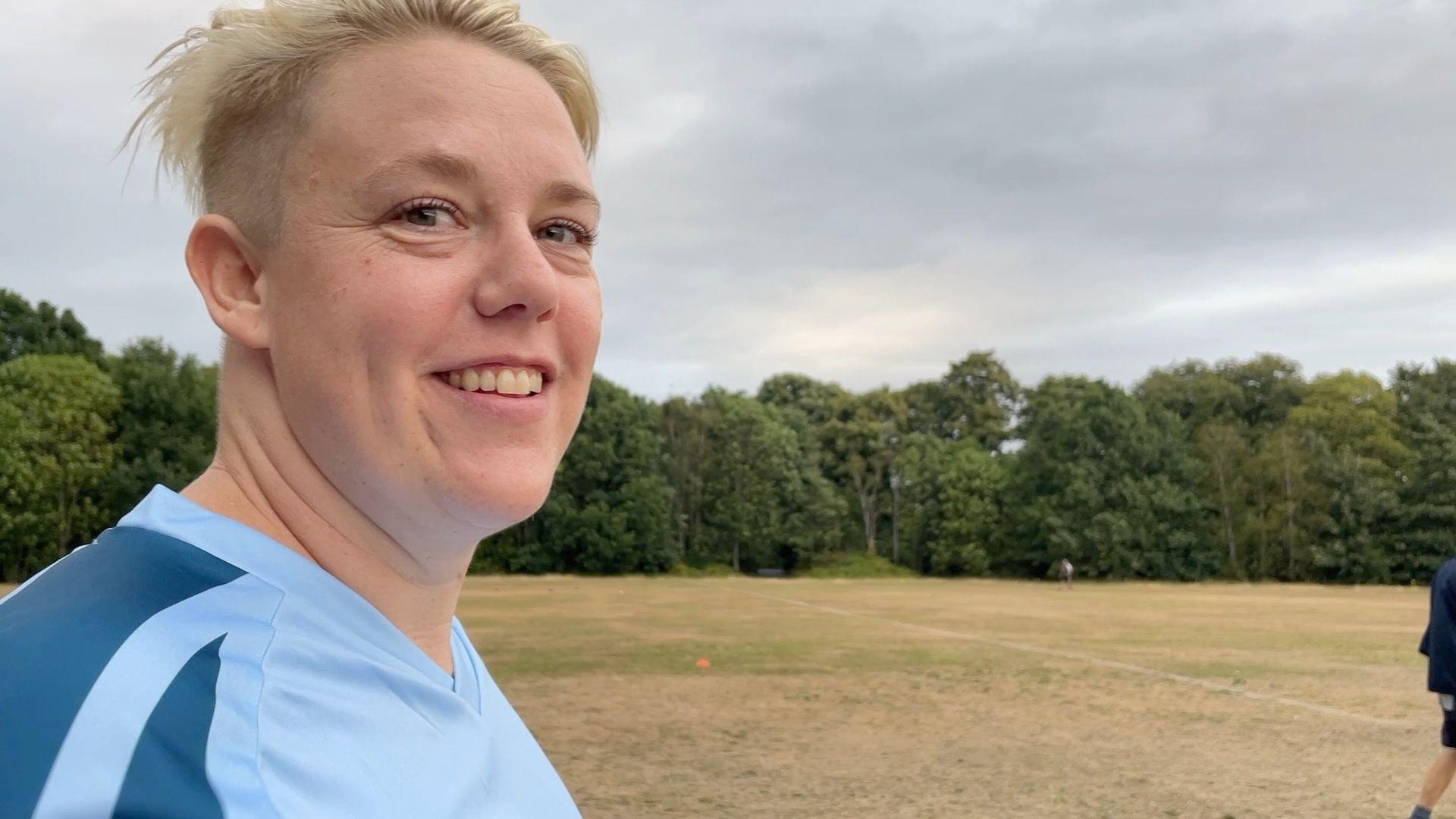
Ms Huyer says she's played softball with people from "every imaginable background"
According to David Peters, who plays for the Fuzzy Ducks team, it is not just the gender balance that makes the sport feel so inclusive.
"In most sports, by the time you're over 35 or something, you're certainly in the autumn of your playing days," he said.
"The great thing about this is there's people playing a decent standard well into their 50s."
He added the softball scene in London was a "really welcoming community".
Softball rules
While softball shares similarities with baseball, there are some key differences.
Softball is played with a bigger ball, and the ball is thrown underhand rather than overhand as in baseball.
The "diamond" (area of play) in softball is smaller in softball, with bases being 60ft (18.28m) rather than 90ft (27.43m) apart.
And softball games have fewer innings than baseball, with seven rather than nine.
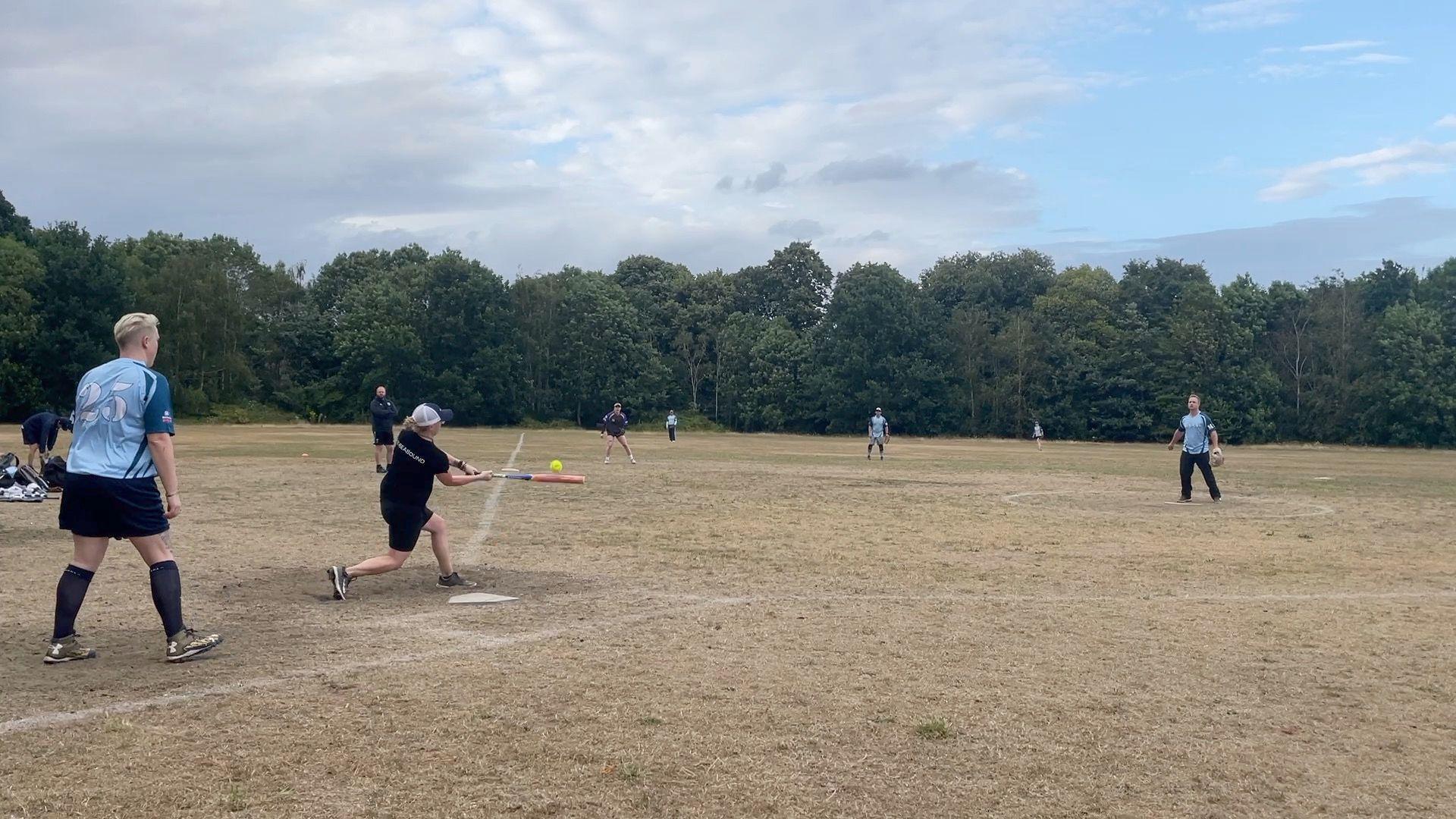
The London Softball League has six divisions with games played weekly from April to August
John Boyd, CEO of BaseballSoftballUK (BSUK), said softball had also "captured a lot of the corporate psyche" in London.
"If anyone wants to walk through Regents Park, you'll see 19 fields of softball being used for teams playing across many different corporate leagues," he said.
"Because it's a mixed sport - it's genuinely 50/50 - it creates a very positive environment for the workplace and from a social perspective too."
Inclusion is a key part of BSUK's strategy, Mr Boyd said.
A few years ago, the agency set up an LGBTQ+ panel to look at evolving the sport into something "more modern than a binary-gender based game".
He added: "[The panel] came up with this set of rules called 'inclusive' softball rules.
"That helped promote not just the two genders, but wider involvement from across the whole of the spectrum."
Those rules have since been adopted "widely across the sport", meaning players are categorised as "small ball hitters" and "big ball hitters" rather than men and women, he explained.
Listen to the best of BBC Radio London on Sounds and follow BBC London on Facebook,, external X, external and Instagram., external Send your story ideas to hello.bbclondon@bbc.co.uk, external
Related topics
Similar stories
- Published24 March 2023
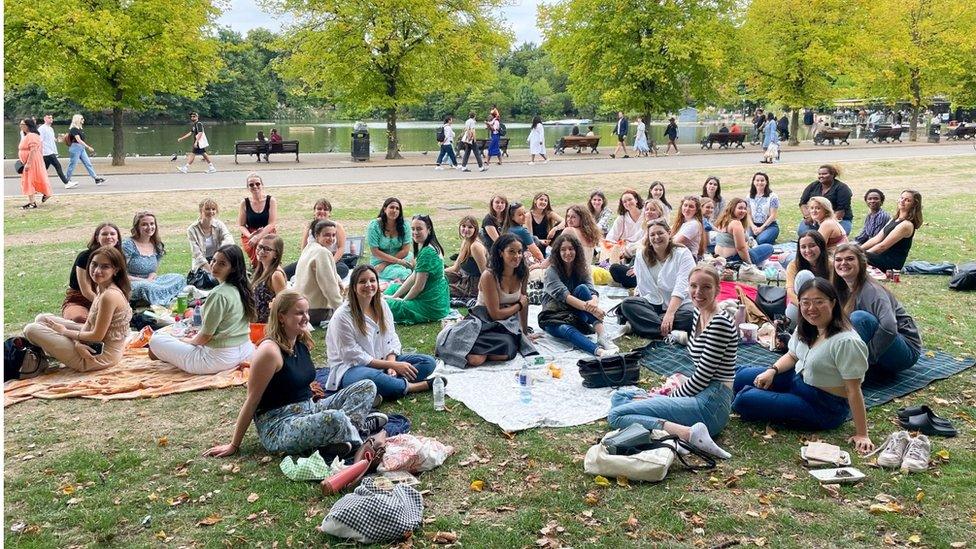
- Published3 May 2022
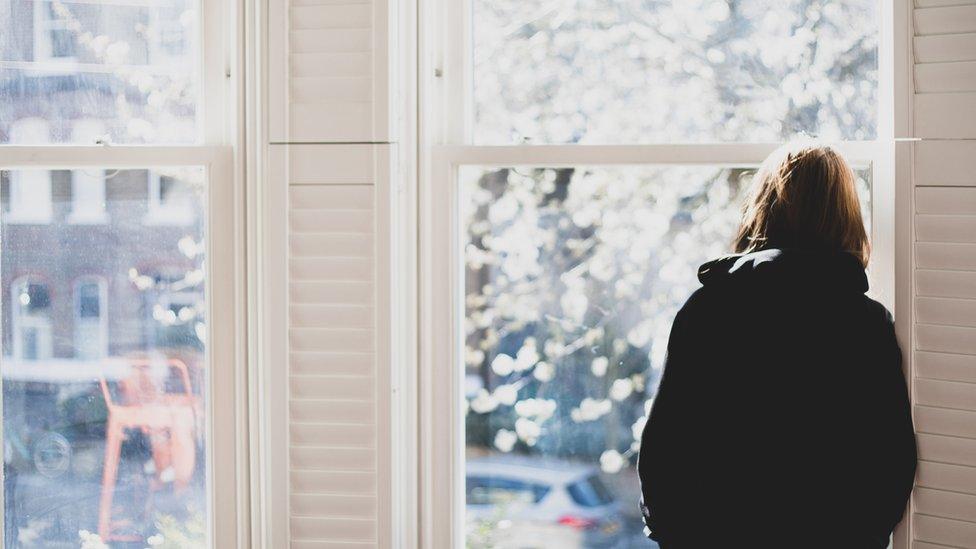
- Published19 April
